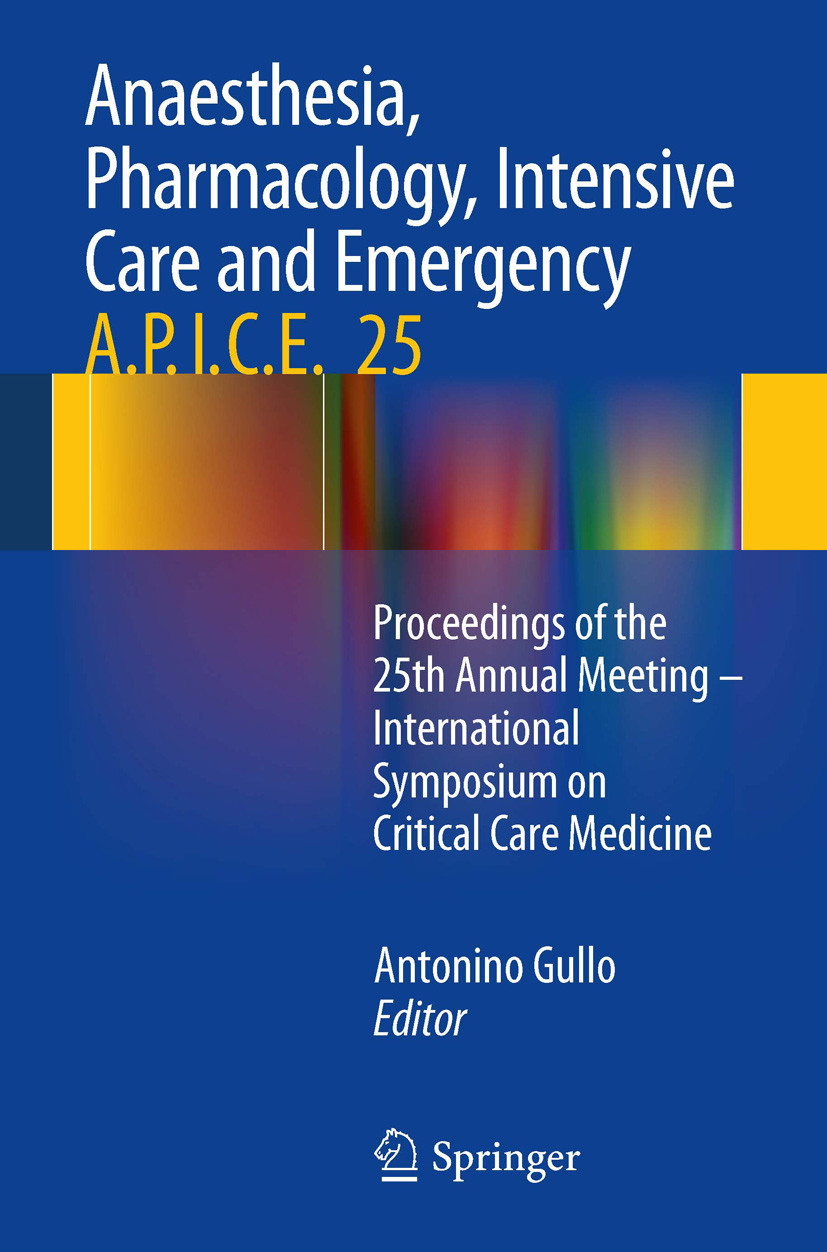Anaesthesia, Pharmacology, Intensive Care and Emergency A.P.I.C.E.
Proceedings of the 23rd Annual Meeting - International Symposium on Critical Care Medicine
| Auflage | 1. Auflage, 2012 |
| Verlag | Springer-Verlag |
| ISBN | 9788847020146 |
Sofort zum Download (Download: PDF)
Produktbeschreibung
Advances in intensive and critical care medicine occur rapidly. Innovation, training and research are the pillars that support a process deriving from basic science and multiprofessional/multidisciplinary interventions. The APICE 2010 Yearbook highlights several innovations for optimising prevention and management measures for the critically ill by integrating diagnostic procedures with pharmacological and technological options. Considering that cerebral, respiratory, cardiovascular, renal and metabolic dysfunctions occurring during serious illnesses or syndromes represent risk factors for patient survival, the final goal remains multifaceted: to improve standards and quality of care; to introduce the expanding concept of clinical governance and professionalism; to focus on the importance of ethical principles for establishing a process of patient-centered and evidence-based care. For these reasons, medical professionals must reach a consensus regarding the importance of continuing medical education.



